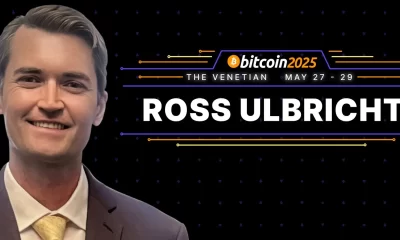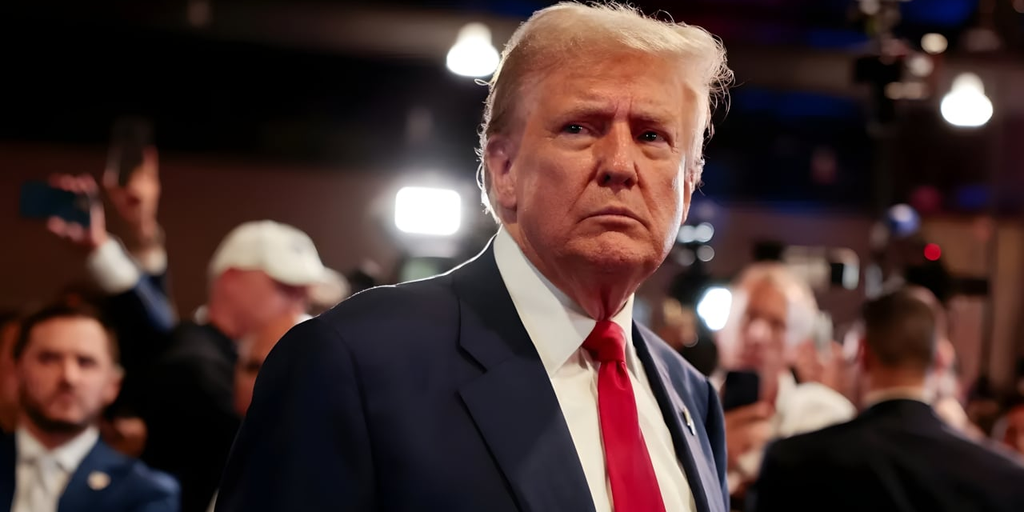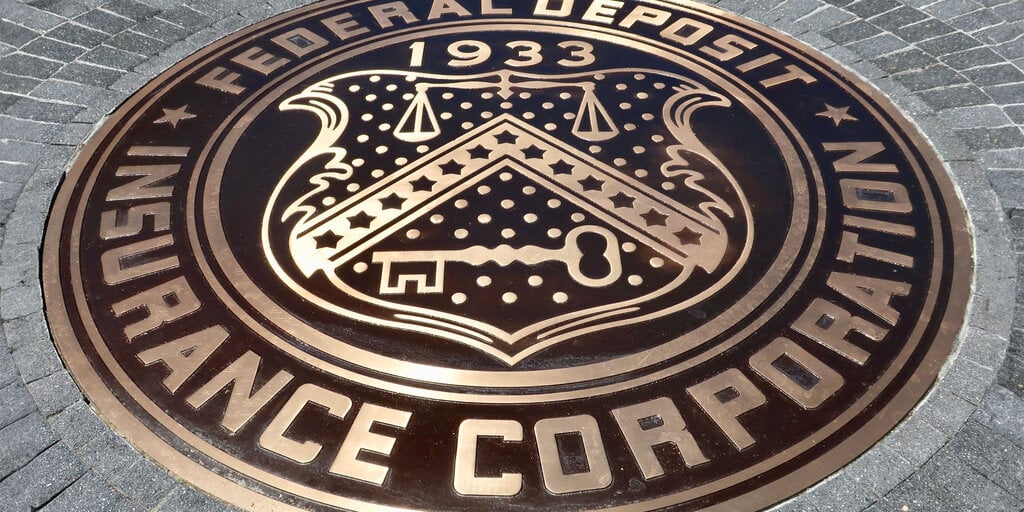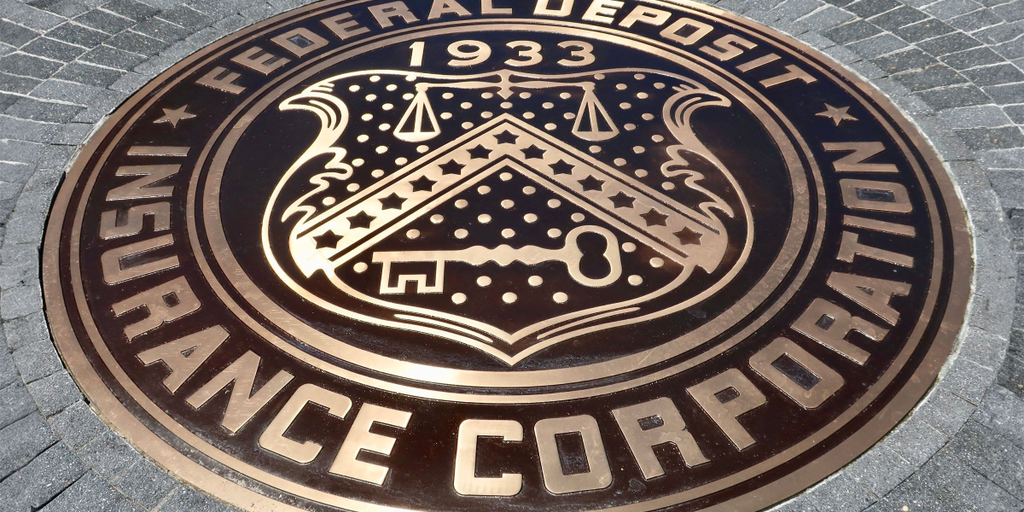business
Illinois State Senator’s Bill Seeks to Claw Back $163 Million Lost to Crypto Fraud
Published
6 days agoon
By
admin

With millions lost to crypto fraud in Illinois, a new bill aims to tighten regulations in the digital asset space.
On Thursday, the Illinois Senate Executive Committee passed Senate Bill 1797, the Digital Assets and Consumer Protection Act, which seeks to regulate digital asset businesses within the state.
The bill, first introduced in February by State Sen. Mark Walker (D-Arlington Heights), aims to address the mounting problem of crypto fraud, which led to over $163 million in losses in Illinois alone in 2023, as per a Thursday statement.
“The rise of digital assets has opened the door for financial opportunity, but also for bankruptcy, fraud, and deceptive practices,” Walker said, adding that, “We must set standards for those who have evolved in the crypto business to ensure they are credible, honest actors.”
The bill, which passed in an 8-4 vote, now moves to the full Senate for consideration. If approved, it will proceed to the House of Representatives for further deliberation before being sent to Governor J.B. Pritzker for final approval.
The legislation designates the Illinois Department of Financial and Professional Regulation (IDFPR) as the primary regulatory body overseeing the activities of digital asset companies.
Such companies will be required to register with IDFPR, providing necessary disclosures and demonstrating their financial stability to ensure consumer protection
A key provision of the bill mandates that companies implement safeguards for customer assets to prevent fraud and mismanagement.
Since its introduction in February, several state senators later added their support as co-sponsors to SB1797: Sen. Karina Villa on March 18, Sen. Rachel Ventura on March 19, and Sen. Michael Hastings, Linda Holmes, and Christopher Belt on March 20.
Illinois and crypto
With this new push, Illinois is taking strict steps to ensure the state’s consumers are protected in the crypto space.
In February, Sen. Dick Durbin introduced the Crypto ATM Fraud Prevention Act to protect consumers, particularly seniors, from scams involving crypto ATMs.
The bill would enforce transaction limits and require operators to offer refunds to victims who report fraud within 30 days.
Meanwhile, on the national stage, House Financial Services Committee Chair French Hill (R-AR) recently said that the personal crypto dealings of President Donald Trump and his family have complicated the drafting of legislation for the crypto sector.
Daily Debrief Newsletter
Start every day with the top news stories right now, plus original features, a podcast, videos and more.
Source link
You may like


Tokenized Gold Nears $2B Market Cap as Tariff Fears Spark Safe Haven Trade


Ross Ulbricht To Speak At Bitcoin 2025


Solana Eyes $200 Target As It Gains Momentum – Recovery Could Mirror 3-Month Downtrend


BTC-denominated insurance firm meanwhile secures $40m in VC funding


‘You Want To Own the Most Hated Thing’ – Arthur Hayes Says Ethereum Set To Outrun Solana As Memecoin Craze Fades


Crypto Braces for a Hidden $4.5 Trillion Catalyst for Bitcoin, Ethereum, Cardano, XRP Price
business
Trump-backed World Liberty Financial Proposes USD1 Airdrop to Early Supporters
Published
3 days agoon
April 8, 2025By
admin

On Monday, World Liberty Financial (WLFI), a decentralized finance project backed by President Donald Trump, announced a proposal to distribute a small amount of its newly launched USD1 stablecoin to all eligible WLFI token holders.
The test, the company wrote, would “validate the technical functionality of its airdrop system in a live environment while thanking early supporters of the project.”
We just posted a new governance proposal:
To test our airdrop functionality by distributing USD1 to all $WLFI holders — rewarding our earliest supporters and preparing for future growth.
Join the discussion
https://t.co/NDg5yMYUrM
— WLFI (@worldlibertyfi) April 7, 2025
Framed as a test of its on-chain airdrop system, the proposal seeks to reward early adopters and boost “visibility and awareness” of its stablecoin USD1 before full-scale deployment.
“Testing the airdrop mechanism in a live setting is a necessary step to ensure smart contract functionality and readiness,” the proposal said.
The exact airdrop amount and timing are still being finalized, though it will occur on Ethereum Mainnet and be funded by WLFI.
“Even if approved, World Liberty Financial, Inc. reserves the right to discontinue, suspend, modify, or terminate the test airdrop at any time as well as to establish any additional eligibility requirements,” the Trump-linked firm wrote.
WLFI’s proposal also lays out a detailed plan including community discussion, finalization of the airdrop amount and execution method, a governance vote, and finally, public announcement of the distribution.
The voters are offered three options: Yes, No, or Abstain, with the majority having selected ‘Yes’ since the proposal was posted 7 hours ago.
WLFI’s Political Ties Trigger Backlash
Since WLFI launched USD1 in late March, just as Congress began debating the bipartisan STABLE Act, lawmakers have sounded alarms over Trump’s financial stake in the project, warning it could compromise the integrity of the regulation.
WLFI, launched last September, has already raised $550 million through token sales, with $390 million reportedly paid out to Trump family-linked entity DT Marks DEFI LLC.
The firm’s stablecoin USD1 is collateralized by U.S. Treasuries and managed by custodian BitGo, but the platform’s governance token remains non-transferable, adding to concerns over transparency and decentralization.
Tensions exploded during a recent House Financial Services Committee markup of the bill as Democrats pushed for amendments that would bar sitting presidents, cabinet members, and their families from launching stablecoins while in office.
Meanwhile last week, Sen. Elizabeth Warren (D-MA) and Rep. Maxine Waters (D-CA) demanded the U.S. Securities and Exchange commission (SEC) to turn over all internal records related to WLFI, citing potential “regulatory favoritism” and the agency’s decision to pause enforcement actions, including one involving WLFI investor and Tron founder Justin Sun.
Daily Debrief Newsletter
Start every day with the top news stories right now, plus original features, a podcast, videos and more.
Source link
business
Solana, Chainlink Support Coming to Both PayPal and Venmo
Published
6 days agoon
April 5, 2025By
admin

Users of popular payments apps PayPal and Venmo will soon be able to buy, sell, hold, and transfer Solana and Chainlink from directly inside their accounts alongside leading cryptocurrencies Bitcoin and Ethereum.
PayPal said that adding the new coins, which are both among the top 15 most valuable cryptocurrencies by market cap respectively according to data from CoinGecko, reflects the company’s “dedication to the evolving digital currency landscape.”
“Since we initially made cryptocurrencies available on PayPal and Venmo, we’ve been listening to our users about what they want to do with crypto on our platforms,” said May Zabaneh, PayPal’s VP of product, blockchain, crypto and digital currencies in a statement.
“Offering more tokens on PayPal and Venmo provides users with greater flexibility, choice, and access to digital currencies,” she added. “This allows for more options to buy, send, or spend within our trusted PayPal and Venmo wallets.”
Access to Chainlink and Solana purchases will roll out to users in-app “over the next few weeks.”
PayPal began allowing users to buy, sell, or hold Bitcoin and Ethereum directly in 2020 and has since made moves to advance its crypto product offering, later expanding capabilities to its popular Venmo mobile payments app.
Since that time, the firm has gradually expanded its crypto footprint, launching its own dollar-pegged stablecoin (PYUSD) on Ethereum in 2023 before expanding it to Solana.
In September 2024, business account owners were granted the ability to buy, sell, and hold assets directly via their accounts, piggybacking on a trend of businesses and institutions cozying up to the largest crypto assets. That announcement was preceded by a feature addition that allowed users to send crypto via PayPal and Venmo using the Ethereum Name Service (ENS).
More recently, the company teamed with crypto payments platform MoonPay, allowing users of Venmo to utilize their balance, bank, or debit card to purchase any cryptocurrency via MoonPay’s payment rails. The same feature was added in PayPal as early as May 2024.
PayPal recently stated a goal of having 20 million merchants using its PYUSD stablecoin by the end of 2025. Around the time of that announcement, shares in the company were trading around $77, but its PYPL stock has slid to $58.47 at the time of writing, marking a loss of around 32% year-to-date.
Solana and Chainlink are both up in the last 24 hours, gaining 5.2% and 1.4% respectively.
Edited by Andrew Hayward
Daily Debrief Newsletter
Start every day with the top news stories right now, plus original features, a podcast, videos and more.
Source link
business
FDIC Clears Path for Bank Crypto Activities Without Prior Approval
Published
2 weeks agoon
March 29, 2025By
admin

Banks can engage in cryptocurrency and other legally permitted activities without seeking prior regulatory approval, so long as they manage risks appropriately, The Federal Deposit Insurance Corporation announced Friday.
The policy change rescinds a 2022 requirement that mandated FDIC-supervised institutions notify the agency before engaging in crypto-related activities. Under the new guidance, banks can offer services involving digital assets without the agency’s advance permission.
“With today’s action, the FDIC is turning the page on the flawed approach of the past three years,” FDIC Acting Chairman Travis Hill said in a statement. “I expect this to be one of several steps the FDIC will take to lay out a new approach for how banks can engage in crypto and blockchain-related activities in accordance with safety and soundness standards.”
The move aligns with similar actions by the Office of the Comptroller of the Currency, which earlier this month reaffirmed that national banks can engage in certain crypto activities, including custody services and stablecoin transactions.
This regulatory shift marks a stark departure from the Biden administration’s approach to cryptocurrency and banking relationships. Documents released earlier this year through Freedom of Information Act requests showed the FDIC frequently deterred banks from offering crypto-related services, critics claimed.
The previous regulatory stance had drawn criticism from lawmakers who started investigations into what some called “Operation Chokepoint 2.0,” a reference to an Obama-era initiative that targeted certain industries including firearms dealers and payday lenders. Critics claimed the Biden administration had similarly targeted the cryptocurrency industry through banking restrictions.
In its new Financial Institution Letter (FIL-7-2025), the FDIC clarified that “FDIC-supervised institutions may engage in permissible crypto-related activities without receiving prior FDIC approval.”
The reversal follows months of pressure from cryptocurrency advocates and completes a significant pivot in federal banking policy. Industry representatives had accused regulators of using informal pressure tactics, including concerns about “reputational risk,” to discourage banks from serving cryptocurrency businesses.
American Bankers Association President and CEO Rob Nichols praised the decision. “We welcome FDIC’s new guidance allowing supervised institutions to engage in permissible crypto-related activities without receiving prior FDIC approval,” he said in an official statement. “America’s banks are actively evaluating ways to compete safely and responsibly across the financial services ecosystem, and this type of regulatory clarity is critical to enhancing innovation in the space.”
The FDIC emphasized that banks still need to consider various risks associated with crypto activities, including market and liquidity risks, operational and cybersecurity concerns, consumer protection requirements, and anti-money laundering obligations. The agency noted that institutions “should engage with their supervisory team as appropriate” when pursuing such activities.
Friday’s announcement comes as part of a broader effort by the Trump administration to remove hurdles for digital assets. Besides the OCC’s actions, the government is pushing for a crypto reserve, and taking actions to boost the local crypto ecosystem.
While cryptocurrency advocates welcomed the policy reversal, challenges remain for the industry—which, as consequence, means not everyone is excited with this regulatory shift. “Holy shit, the next Wall St. crash is going to make us long for the good ol’ days of the Great Depression,” said Justin Rosario, host of the political podcast “The Opinionated Ogre.”
Others expressed concerns about the abruptness of the change. “FDIC announces robust new requirement to engage in crypto activities: you must pinky swear,” bank advisor and expert Donald F. Billings wrote on LinkedIn.
The FDIC regulates and insures banks that hold trillions of dollars in deposits. Its new stance could potentially unlock significant capital flows into the cryptocurrency sector as banks reassess their ability to serve digital asset companies and offer crypto-related products to customers.
Edited by James Rubin
Daily Debrief Newsletter
Start every day with the top news stories right now, plus original features, a podcast, videos and more.
Source link

Tokenized Gold Nears $2B Market Cap as Tariff Fears Spark Safe Haven Trade

Ross Ulbricht To Speak At Bitcoin 2025

Solana Eyes $200 Target As It Gains Momentum – Recovery Could Mirror 3-Month Downtrend

BTC-denominated insurance firm meanwhile secures $40m in VC funding

‘You Want To Own the Most Hated Thing’ – Arthur Hayes Says Ethereum Set To Outrun Solana As Memecoin Craze Fades

Crypto Braces for a Hidden $4.5 Trillion Catalyst for Bitcoin, Ethereum, Cardano, XRP Price

Block Agrees to $40M NYDFS Penalty Over Lackluster Compliance Program

Top Bitcoin miners produced nearly $800M of BTC in Q1 2025

Tariffs, Trade Tensions May Be Positive for Bitcoin (BTC) Adoption in Medium Term: Grayscale

The U.S. Tariff War With China Is Good For Bitcoin Mining

Dogecoin Bull Div Plays Out, Analyst Maps Next Price Targets

Web3 search engine can reshape the internet’s future

Billionaire Ray Dalio Says He’s ‘Very Concerned’ About Trump Tariffs, Predicts Worldwide Economic Slowdown

Top 4 Altcoins to Sell Before US-China Trade War Extends Beyond 125% Tariffs

OpenAI Countersues Elon Musk, Accuses Billionaire of ‘Bad-Faith Tactics’

Arthur Hayes, Murad’s Prediction For Meme Coins, AI & DeFi Coins For 2025

Expert Sees Bitcoin Dipping To $50K While Bullish Signs Persist

Aptos Leverages Chainlink To Enhance Scalability and Data Access

Bitcoin Could Rally to $80,000 on the Eve of US Elections

Crypto’s Big Trump Gamble Is Risky

Sonic Now ‘Golden Standard’ of Layer-2s After Scaling Transactions to 16,000+ per Second, Says Andre Cronje

Institutional Investors Go All In on Crypto as 57% Plan to Boost Allocations as Bull Run Heats Up, Sygnum Survey Reveals

Ripple-SEC Case Ends, But These 3 Rivals Could Jump 500x

Has The Bitcoin Price Already Peaked?

A16z-backed Espresso announces mainnet launch of core product

The Future of Bitcoin: Scaling, Institutional Adoption, and Strategic Reserves with Rich Rines

Xmas Altcoin Rally Insights by BNM Agent I

Blockchain groups challenge new broker reporting rule

I’m Grateful for Trump’s Embrace of Bitcoin

Trump’s Coin Is About As Revolutionary As OneCoin
Trending

 24/7 Cryptocurrency News5 months ago
24/7 Cryptocurrency News5 months agoArthur Hayes, Murad’s Prediction For Meme Coins, AI & DeFi Coins For 2025

 Bitcoin3 months ago
Bitcoin3 months agoExpert Sees Bitcoin Dipping To $50K While Bullish Signs Persist

 24/7 Cryptocurrency News3 months ago
24/7 Cryptocurrency News3 months agoAptos Leverages Chainlink To Enhance Scalability and Data Access

 Bitcoin5 months ago
Bitcoin5 months agoBitcoin Could Rally to $80,000 on the Eve of US Elections

 Opinion5 months ago
Opinion5 months agoCrypto’s Big Trump Gamble Is Risky

 Altcoins2 months ago
Altcoins2 months agoSonic Now ‘Golden Standard’ of Layer-2s After Scaling Transactions to 16,000+ per Second, Says Andre Cronje

 Bitcoin5 months ago
Bitcoin5 months agoInstitutional Investors Go All In on Crypto as 57% Plan to Boost Allocations as Bull Run Heats Up, Sygnum Survey Reveals

 Price analysis5 months ago
Price analysis5 months agoRipple-SEC Case Ends, But These 3 Rivals Could Jump 500x


